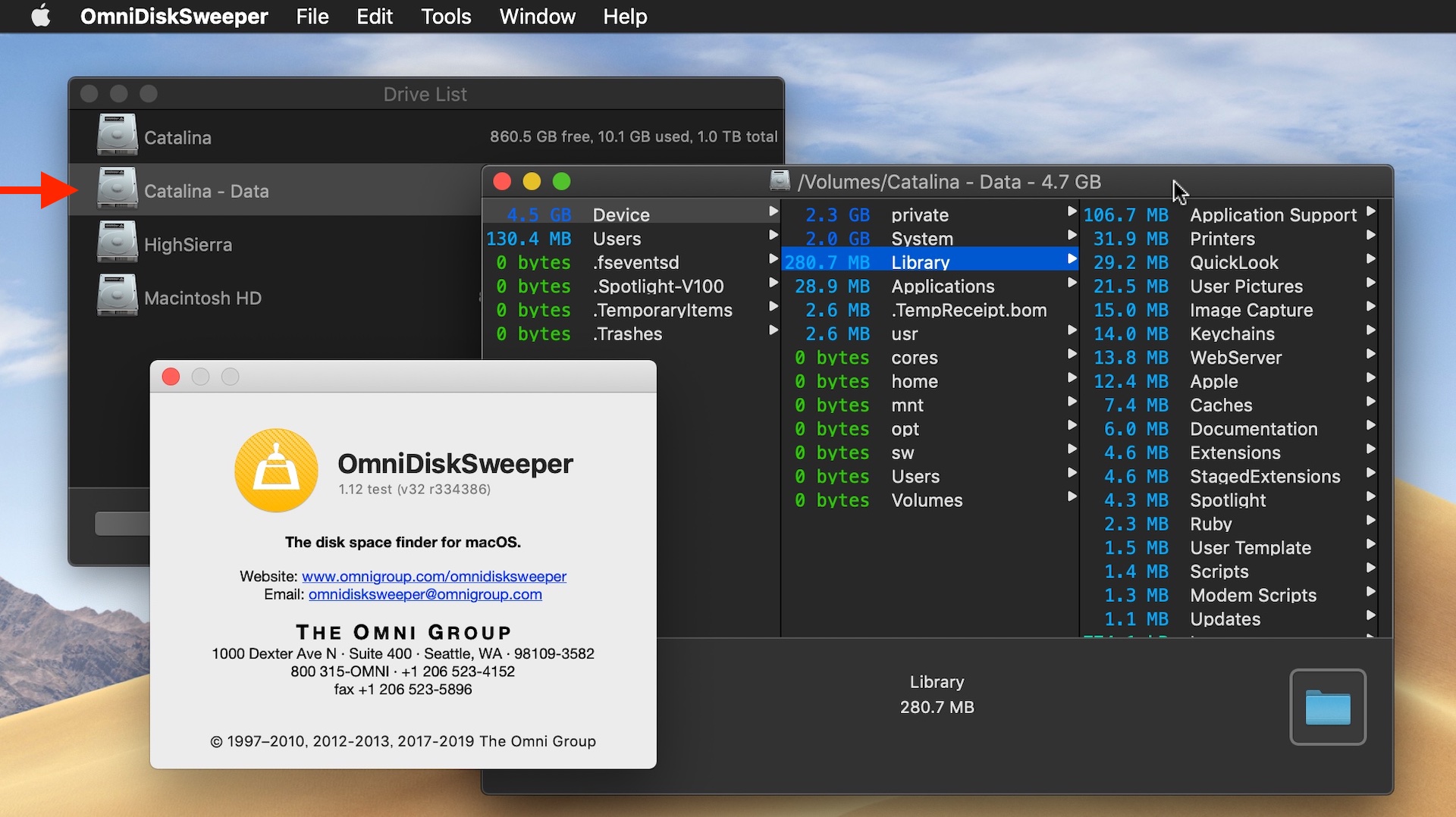

- #Use omnidisksweeper update#
- #Use omnidisksweeper full#
- #Use omnidisksweeper software#
- #Use omnidisksweeper free#
#Use omnidisksweeper free#
Provided kindly for free, this is a reasonable, colorful, useful way to dig around on your drives to find what's taking up all your drive space and how much of it, starting with the invisible files and folders we normally don't see.Īlso note that the free OmniWeb browser is still around and kept up-to-date. (Or you can proceed without granting OmniDiskSweeper permission to scan those folders, in which case OmniDiskSweeper won’t be able to tell you how large they are.)"
#Use omnidisksweeper full#
If you wish, you can avoid these prompts by granting OmniDiskSweeper full disk access under System Preferences > Security & Privacy > Privacy. When OmniDiskSweeper scans the files in your home folder, it triggers these alerts: so we’ve added a description that explains that OmniDiskSweeper doesn’t actually open any of the files it scans, it just lists those files for you to review. File Access Alerts - On Mojave, any app which attempts to access a folder which contains your calendars, contacts, photo library, or reminders will trigger an alert.Dark Mode - Added support for Mojave’s Dark Mode.Older versions are available at the OmniGroup site. It requires at least macOS 10.13 High Sierra. I tried once and there was no problem, but dango, it sure worked fast and there is no getting files back when deleted that way (except from backup). I do not use OmniDiskSweep for deleting anything.
#Use omnidisksweeper update#
It used to update automatically, but that stopped happening somewhere along the way. OmniDiskSweeper shows you the files on your drive, largest to smallest. I have to close the window for a drive and start new sweeps. Quickly find large, unwanted files and sweep them into the trash. OmniDiskSweep is not automatically updating as files move around. There is one problem I am having, I don't know if it affects anyone else.

It really helps me see where disks are getting crowded and to keep my files organized. OmniDiskSweep always is running on one of the macOS desktops. It is not the most complicated thing in the world, but it is not the simplest either. Every drive has some primary files, all the HDs have backups of files that are primary on other drives. The primary files I use are distributed among the five drives, and they all are backed up to other drives. In addition to macOS, I have two critical virtual servers running as guest OSs (Debian) under VMWARE Fusion. The others were ok, but I find OmniDiskSweep the most helpful. I tied three other products before this one. Since the directories and files are sorted by size, you get to quickly zoom in on the big files that are taking up all the space.
#Use omnidisksweeper software#
However, using any app or utility with 'sudo' does give the app administrative privileges so it could inadvertently cause software or settings. If this is the beginning of a GPU failure it was just a coincidence. Using 'sudo' with Omni DiskSweeper would not have caused a GPU failure. OmniDiskSweeper is really great at what it does: showing you the files on your drive, in descending order by size, and letting you delete them easily! It scans your disks as quickly as possible and shows you the facts - if a file doesn't make the cut to stay, just click the big Delete button and be done with it. The GPU failure can begin with intermittent issues and it will likely get worse.


 0 kommentar(er)
0 kommentar(er)
